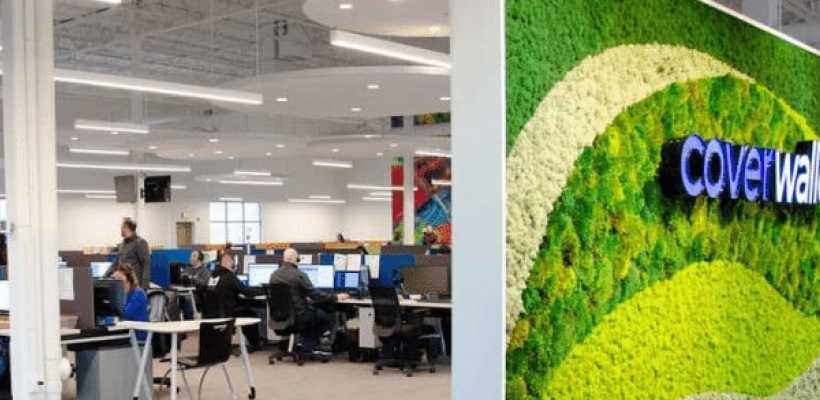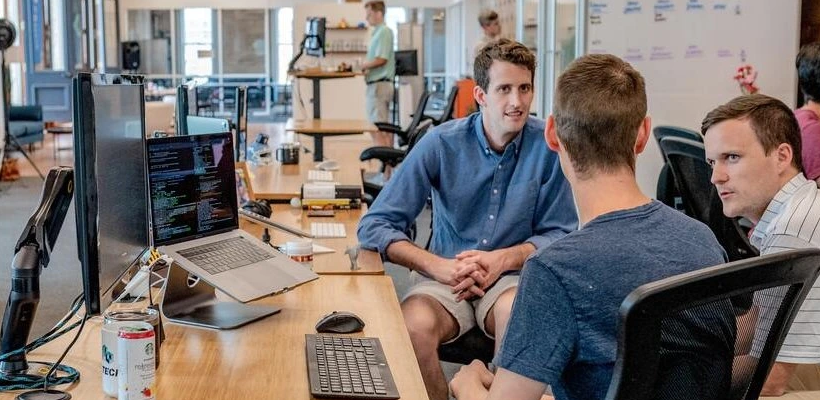We had the opportunity to speak with HR expert Stephen Elkins-Jarrett regarding his career in HR, and his experience and insights working with HR software systems. Stephen’s career in HR is wide-ranging, as he previously worked as an HR director and manager. Along with working as head of people, training, personal development, coaching, CBT counsellor and as a management consultant. He also set up S.J.Jarrett- a company which provides HR and management consultancy services. In this interview, we will discuss his career in HR, how it evolved into what it is today, and his knowledge and experience working with HR software.
Tell me a bit about yourself and how your career in HR evolved into what it is today.
My Career is weird. I started as a chef, age 16, trained for 2 years and then I went into the construction industry for no other reason than my dad worked there and I had had enough of 6 days a week 5am to midnight working weekends etc. as a trainee chef. Whilst there I joined a local amateur drama group and met a guy called Mike Smith a Coopers and Lybrand (now Price Waterhouse Coopers) and he was a management consultant. We got on well and he asked me to join him in his new business Manskill Associates (not a name you could use today). I joined on the condition in my own time I went back to night school and did my A levels, a degree on Organisational Psychology and became a European master trainer in Psychometrics and Large Group Facilitation using the Neuland Pinpoint System. I shadowed Mike in every meeting, every group session, training sessions, and learned as I went. When he thought I was ready he let me loose on my first client and the rest they say is history.
I see that you have a lot of experience within the sphere of HR. What made you first get into HR?
As I was working as a management consultant it became apparent to me that HR was the kingpin and centre of the glue that held all departments together in most businesses. So, I Joined the CIPD and I also studied a certificate and then diploma in HR as a generalist. I also became life coach, a CBT Counsellor, NLP Practitioner and wrote my own behavioural model called spectrum, like MBTi, DISC, Insights, Lifo, and many others but at a fraction of the cost. It also had a team version and an organisational version, so you can analyse a whole team or a whole business and see its culture and values for real.
Tell me a bit more about S.J.Jarrett and the work it does?
I set up S.J.Jarrett Ltd to support SMEs in local areas and more recently nationally. Both so I could do HR interim roles as a HR director, HR Manager, ER caseworker and manager, training manager, and HRBP for over 12 years. It also allowed me to work more from home, as for over 25 years I have travelled the world working. Additionally, it also gave me the time to write and co-write 4 books. Across the Spectrum looking at how behaviour, culture and values in any business can be easily aligned from an HR perspective. I also co-wrote a trilogy of books called Blood Sweat and Tears with Nick Skinner. These books are mnemonic and analytical tools used to look at how business is going, to see if it is healthy or not. So for example, B is for brand and L is for leadership and O is for Opportunities and outcomes and D is for decisions etc. It allows any business to stop and look at itself from every aspect and see how healthy it is, what needs to be changed and how it can be changed.
As a human resource specialist at S.J.Jarrett, what does this role entail?
I give end to end generalist advice to my clients and coach their managers and leaders to learn how to do HR stuff, policies, processes, templates, model letters and note taking appeals, grievances, disciplinaries, redundancies, recruitment and everything in between.
In your career in HR, have you had any experience working with HR software? If so, what are your thoughts on the importance of it?
Yes, through lots at my clients, and so I have had experiences with about 20+ HR software systems. It is very important when it works and it only works if the policies, procedures and systems and methodology is working to at least 80% before you put it in place – you need to have a methodical organised system in place to get the best out of it. Once you have it working well then for analytical data and analysis of almost anything from Absence, managing holidays, sickness, employee’s data, reporting etc it can be brilliant.
Do you believe HR software is conductive to accomplishing the growth of businesses? If so, how?
Yes, because most companies especially the smaller ones tend not to have dedicated HR and so they take their eye off the ball and do not manage sickness, absence efficiently and this costs them thousands every year and forces them to be reactive instead of proactive in their dealing of all things HR. A good system used well, and consistently used by all employees and managers will save them time, money and improve employee engagement and morale amongst the workforce.
What would you say is the most important thing you have learnt through your HR related work experiences?
Do not react, stop and think and analyse before diving in. Look at your options and choose the best one. Try to deal with people on a daily basis and solve issues as they arise and informally, if you can. Do not let an issue grow and grow until it becomes unmanageable and then you are left with a manager and employee or two employees not talking to each other and it has now become a formal grievance or disciplinary hearing. 99% of the time if these two people were to sit down and discuss the things that annoy each other and spoke about them, then they could be fixed! It seems to me that everyone now regard themselves as “experts” in HR because they looked it up on Google.
People also tend to always want to go legal to solve a problem, and surely it is in everyone’s interest to work for the company as best as they can, do the best job they can and all pull in the same direction not against each other? HR has become the critical friend to the leaders and managers of the business, a coach, a counsellor, a psychologist, a mediator to the employees, and in some cases a school teacher! We have to make sure we always do what is right for the employer and the employee. Sometimes we can be put in very difficult positions!

